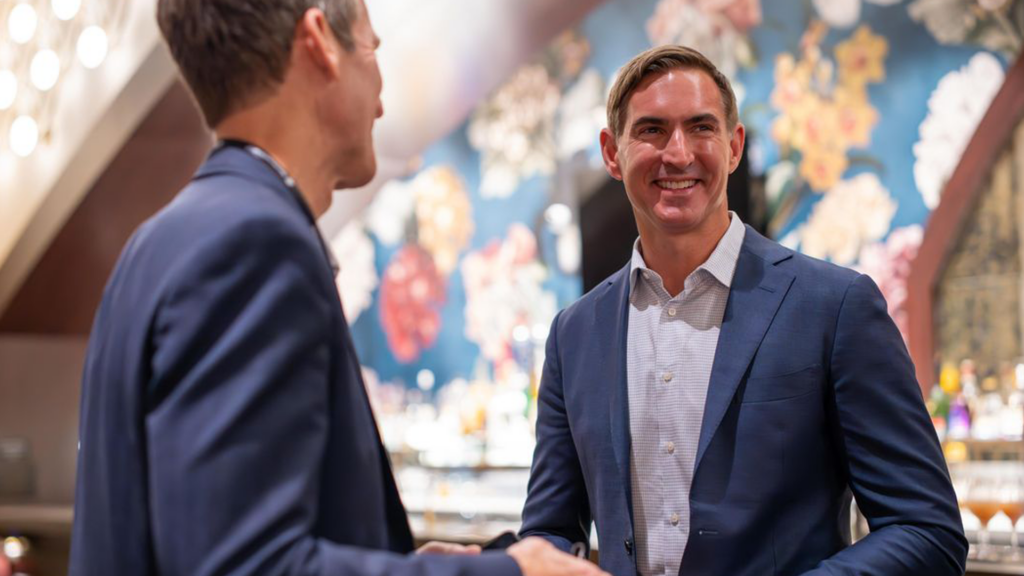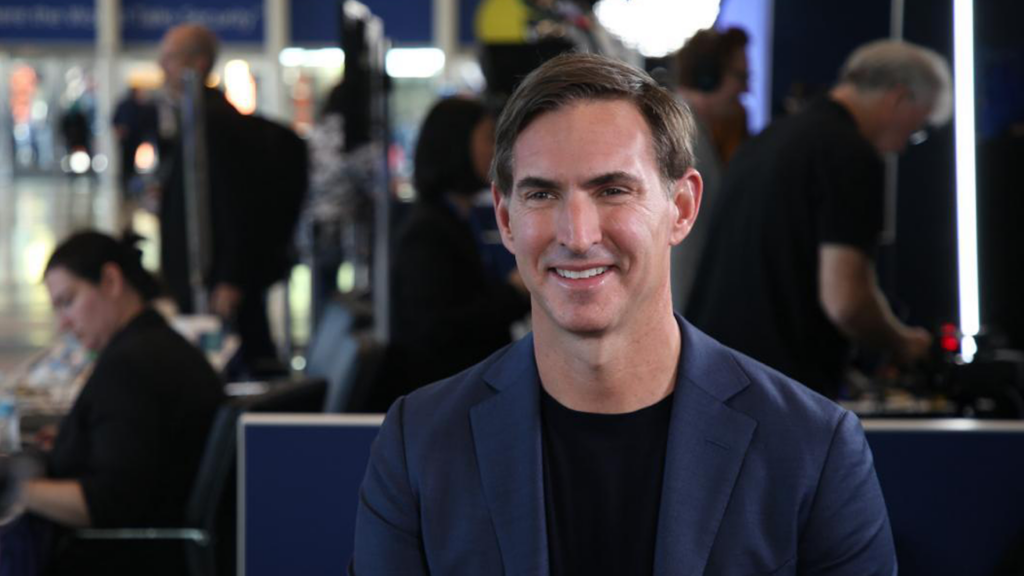Throughout U.S. history, the Asian American, Native Hawaiian and Pacific Islander (AANHPI) community has made a myriad of meaningful contributions—through innovation in the arts, science, politics and more—that have positively influenced and shaped American history, society and culture. That’s why I’m thrilled that this year’s AANHPI Heritage Month theme is Advancing Leaders Through Innovation—it’s an opportune time for us to pay homage to those trailblazers and reflect on what organizations can do to provide leadership opportunities for their AANHPI employees and help them thrive in their career.
I sat down with members of the Asian@Dataminr employee resource group (ERG) to learn about their favorite leaders and innovators, and how allies can support the AANHPI community.
Check out what they had to say.
Who is your favorite AANHPI role model/leader, and why?
It was fascinating to learn from my colleagues about prominent AANHPIs, who come from a wide variety of industries. These influential figures—who defied the odds to become leaders in their field through talent, resilience and hard work—deserve more recognition from not just the AANHPI community, but all of us.
Jaimie Li, Senior Director of Engineering at Dataminr, looked up to former professional tennis player Michael Chang. His story of improbably winning the French Open at 17 years old is often referenced in her social circles as a prime example that anything is possible with hard work and dedication. Michael was relatively small in stature compared to many of his opponents, but he compensated for that with his exceptional athleticism, mental resilience and unorthodox plays. “Beyond his tennis career, Michael’s commitment to giving back to the AANHPI community has been equally inspiring.”
Linh Nguyen, Senior Content Marketing Writer at Dataminr, picked Vietnamese-American fashion designer Peter Do and his eponymous label as a recent favorite. “As a fellow Vietnamese, I’m proud of and impressed by his extraordinary achievements in the highly competitive, cut-throat fashion industry,” she said. “From growing up on a farm in the Vietnamese countryside to immigrating to the U.S. as a teenager and having his clothes now worn by top global celebrities, Peter is an inspiration to all AANHPI creatives who come from a humble background.”
Felize Chua, Director of People Business Partner at Dataminr, gave shoutouts to two women: Michelle K. Lee and Lea Salonga. As the former director of the U.S. Patent and Trademark Office, Michelle not only worked in a traditionally male-dominated field, but broke barriers and paved the way for others. “Her dedication to innovation and commitment to diversity and inclusion inspire me to push boundaries in my own career.”
Renowned Filipina actress and singer Lea, whose talent has transcended borders and inspired generations, has used her platform to advocate for diversity and representation in the arts. “Lea’s ability to break barriers and shine on the global stage motivates me to pursue my own passions.”
Adele Sanchez, Director of Go-to-Market Enablement at Dataminr, is a big fan of comedian and actor Jo Koy. As a Filipina, Adele finds his work very relatable. “Jo is able to take the most nuanced aspects of being in a Filipino family and give them light and laughter,” she said. “He’s taken great strides at elevating the Filipino experience in America and bringing that to popular culture.”
What is one AANHPI-driven innovation that you want people to know about?
Instead of naming a particular innovation, Felize started our discussion by introducing the Filipino concept of Bayanihan (buy-uh-nee-hun), which embodies the spirit of communal unity and cooperation. This cultural value has inspired collaborative initiatives and resource-sharing networks within the AANHPI community, fostering innovation and resilience in the face of challenges.
Both Jaimie and Adele drew our attention to I.M. Pei—a Chinese-American architect whose prolific career throughout the 20th century continues to have a profound influence on modern architecture. Internationally celebrated, his iconic works include the Louvre Pyramid in Paris; the East Building of the National Gallery of Art in Washington D.C.; the Museum of Islamic Art in Doha, Qatar; and the Bank of China Tower in Hong Kong.
And Linh reminded us of the infamous Sriracha chili sauce—a staple in numerous restaurants and households in North America. Though originated in Thailand, Sriracha was introduced and made popular in the U.S. thanks to David Tran, a Vietnamese entrepreneur who came to the U.S. as a refugee in the late 1970s. His vision and business acumen turned Sriracha into a cult favorite and made him a billionaire.
How can allies advocate for their AANHPI colleagues and leaders in the workplace?
All leaders and employees greatly benefit from allyship. Below are some of the recommendations the group shared on what allies can do to advocate for their AANHPI colleagues.
- Understand and respect cultural nuances that affect how colleagues and leaders behave. Some AANHPI cultures value humility, being quiet and putting others first. If your AANHPI colleagues tend to be less vocal, it doesn’t mean they’re not competent or don’t want a promotion.
- Advocate for more inclusive policies and practices, such as mentorship and networking opportunities that directly connect AANHPI employees with allies and leaders who can support and advance their growth.
- Encourage people to share their opinions, amplify employee voices in decision-making processes, give credit when credit is due, and recommend AANHPI and other underrepresented groups for growth opportunities (e.g. promotions, leadership training programs, etc.).
- Learn about AANHPI history and issues, engage in dialogue, and foster a safe environment and culture of belonging where everyone feels valued and supported.
- Acknowledge, and learn about, the significance of AANHPI Heritage Month and when available attend events hosted by the AANHPI community.
These tips are not only extremely insightful, but actionable for employees at all levels. Each one also helps each of us, myself included, understand how we can better support one another.
How do you usually celebrate this month?
Interestingly—but not surprisingly—the ERG members shared very similar responses to this question. The common thread is that they don’t exclusively celebrate and support the AANHPI community during the month of May, and neither should we.
Linh tries to find and support new and/or smaller AANHPI-owned businesses, as well as educate herself on prevalent AANHPI social issues and history to raise awareness about them in her network.
Both Adele and Felize actively acknowledge the month with their community and peers, reflect on the achievements of AANHPI leaders, consume more AANHPI media, and make time to attend various cultural celebrations and events in their cities.
And for Jaimie, sharing her heritage with others through food—whether by exploring new markets, trying different restaurants, or hosting dinners with friends and family—is her favorite way to honor the month. “Now that I’m a mom, I’m especially excited to make and introduce delicious dishes to my daughter and share them with her peers.”
Lastly, the Asian@Dataminr ERG is celebrating by hosting a number of events to commemorate the month. All employees are welcome to participate:
- Dinner at a dimsum restaurant for NYC-based employees
- A virtual discussion with an external expert on how to combat and raise awareness about mental health stigmas within the AANHPI community
- A virtual panel, moderated by the ERG’s Executive Sponsor and Dataminr’s interim CFO, President and Chief Strategy Officer Kiran Rao, that will spotlight and elevate the voices of our AANHPI employees and their amazing contributions to our organization
Beyond May, we’ll continue to facilitate activities to celebrate AANHPI cultures throughout the year, such as the Mid-Autumn Festival in September and Diwali in November.



